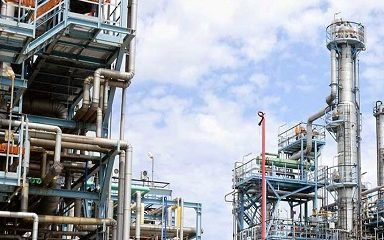Barely a month after its much-publicized reopening, the Port Harcourt Refinery has reportedly ceased operations, with petrol lifting coming to a standstill as of Thursday, December 19, 2024.
Reports indicate that the refinery’s 18-arm loading bay, which was operational during the November inauguration, was vacant as of Friday, December 13. Observers noted a striking absence of activity, with only nine trucks parked within the refinery yard and no lifting of Premium Motor Spirit (PMS), commonly known as petrol.
The Port Harcourt Refinery, which has a production capacity of 60,000 barrels per day, was reopened on November 26, 2024, in a ceremony led by Mele Kyari, CEO of the Nigerian National Petroleum Company Limited (NNPCL). The event followed a $1.5 billion rehabilitation project approved in March 2021.
During the reopening, petrol lifting was observed, though reports later claimed that fewer than 10 trucks of petrol were lifted, contrary to assertions that approximately 200 trucks had departed the loading bay. Stakeholders alleged that the petrol lifted during the inauguration was old stock from the storage tank, not newly refined products.
Subsequent visits to the refinery revealed an eerily quiet facility, with tankers absent from the typically bustling depot. The Petroleum Products Retail Outlets Owners Association of Nigeria attributed the inactivity to the calibration of meters at the loading bay and the de-watering of old stock to make way for new products.
The shutdown raises questions about the effectiveness of the multi-billion-dollar rehabilitation project and its ability to deliver consistent refining operations. Stakeholders are concerned about the transparency of the facility’s operations and the long-term prospects of Nigeria’s domestic refining capacity.
The halt in refinery operations could exacerbate Nigeria’s reliance on fuel imports, strain the nation’s foreign reserves, and hinder efforts to stabilize the energy sector.
The Nigerian public, already grappling with fuel price volatility, awaits clarity on the future of the Port Harcourt Refinery and the broader impact on the nation’s energy landscape.


